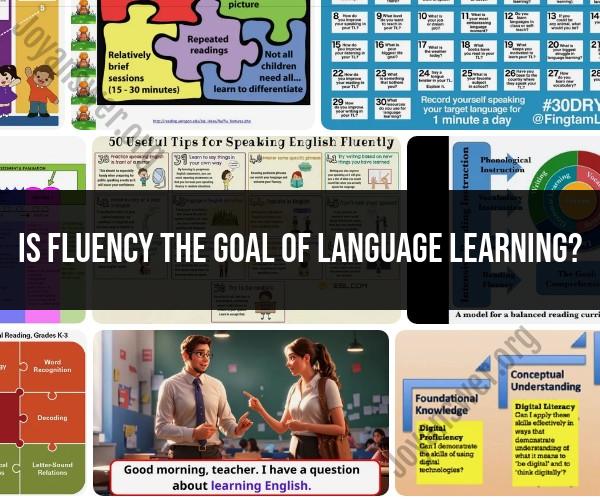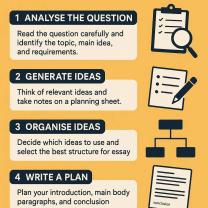Is fluency the goal of language learning?
Fluency is often considered a significant milestone and a desirable goal in language learning, but whether it is the ultimate goal depends on the individual's language learning objectives and needs. Fluency represents a high level of proficiency and competence in a language, and it generally implies the ability to communicate effectively, understand spoken and written texts, and express oneself comfortably in various situations. Here are some points to consider regarding the role of fluency in language learning:
Communication: For many language learners, the primary goal is to become fluent in a language so they can communicate effectively with native speakers and other language learners. Fluency allows individuals to engage in conversations, express their thoughts and opinions, and understand the responses of others.
Integration and Adaptation: When learning a language for purposes such as travel, work, or immigration, achieving fluency can be crucial for integrating into a new culture and society. Fluent language skills can facilitate daily interactions, job performance, and cultural adaptation.
Professional Development: In a professional context, fluency in a second language can open up opportunities for international business, diplomacy, translation, and interpretation. Fluency can be a valuable asset in careers that require language skills.
Academic Pursuits: Language learners pursuing academic goals, such as studying at a university in a foreign country, often aim for fluency to succeed in coursework and research.
Cultural and Personal Enrichment: Some individuals learn languages primarily for personal enrichment, cultural appreciation, or hobby. While fluency may not be the ultimate goal in such cases, it can enhance one's ability to engage deeply with a culture and its literature.
Practical Communication: In certain situations, such as emergency communication or basic travel needs, achieving basic conversational skills and functional language proficiency may be sufficient, and full fluency may not be necessary.
It's essential to recognize that fluency is a spectrum, and the level of fluency required can vary widely depending on individual goals. Not everyone needs to achieve native-like fluency, and many language learners may be satisfied with intermediate or advanced proficiency that allows them to accomplish specific tasks or enjoy meaningful interactions in the target language.
Ultimately, the goal of language learning should align with an individual's specific needs, interests, and objectives. Whether fluency is the ultimate goal or a means to another end, successful language learning is a journey that requires dedication, practice, and ongoing learning.













